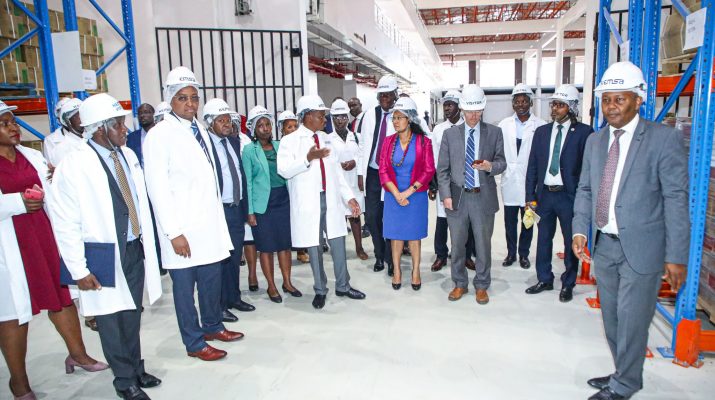By Dorothy Musyoka
In a significant development for women’s health, Kenya has received 450,000 doses of self-administered sub-cutaneous Depot Medroxy-Progesterone-Acetate (DMPA-SC) contraceptives.
This acquisition aims to simplify and enhance access to contraception by eliminating the need to visit a health centre for administration.
The DMPA-SC contraceptives valued at Ksh. 56,418,382 were procured by the United Nations Population Fund (UNFPA), the Foreign, Commonwealth & Development Office (FCDO), and other partners.
The contraceptive is a user-friendly injectable that can be administered by trained individuals, including community health workers and women themselves, thus increasing access to family planning beyond traditional healthcare settings.

During the reception of the consignment at the Kenya Medical Supplies Authority (KEMSA) National Supply Chain Centre in Embakasi, Dr.Patrick Amoth, the Ag Director General of Health, said the initiative aims to meet the unfulfilled demand for family planning.
“This collaborative effort signifies a significant step in overcoming barriers to commodity security, addressing the unmet need for family planning services, and enhancing health outcomes for women and families across Kenya, said Dr.Patrick Amoth.
The event, organized in collaboration with partners such as UNFPA and FCDO, demonstrated the collective commitment to improving reproductive health commodity security and advancing family planning objectives in Kenya.
According to the Kenya Demographic and Health Survey (KDHS) injectable contraceptives and implants are the most commonly used contraception methods among women of reproductive age in Kenya, as indicated in data from the 2022 KDHS key indicator report.
The report further highlights that 14% of married and sexually active unmarried women in Kenya aged 15-49 have an unmet need for family planning, which hinders their ability to prevent unintended pregnancies and plan their families.
In 2023, UNFPA supported the Ministry of Health in expanding access to family planning commodities and services in Kenya by procuring a range of family planning methods distributed to over 8,000 health facilities across 47 counties.

